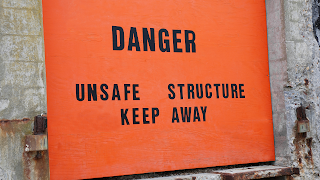Navigating Betrayal: Identifying the Stage You’re In & Learning to Process Your Feelings
Mark 14:44, ESV: “Now the betrayer had given them a sign, saying, The one I will kiss is the man. Seize him and lead him away under guard.”
When we think of betrayal, disloyalty, and being sold out comes to mind. Someone has broken our trust, deceived us, or hurt us. When caught, it is quickly said, “it was not intentional,” but how can it not be when it began with a thought? The act was thought about and then acted upon, so how could that not be intentional? If we kept it real, it is because we are a people that do not take accountability and own the fact that we are bruised and damaging to others. We want to do what we want and what we have been allowed to do.
I have experienced betrayal in the following ways:
- Friends siding with the enemy.
- Family assassinating my character.
- Co-workers were spreading rumors.
- Not being defended
- & More
Because of the shame and humiliation associated with betrayal, I found my way back to Depression Avenue, and each time was worse than the last. While I associated with others, I did not fully trust anyone. I was losing sleep, and my productivity suffered. These were some hard times I had to push through, all while showing up for my daughter. According to healthline.com, the effects of betrayal include shock, loss and grief, morbid preoccupation, damaged self-esteem, self-doubting, and anger. Not infrequently, they produce life-altering changes. The effects of a catastrophic betrayal are most relevant for anxiety disorders, and OCD and PTSD in particular.
The stages of betrayal and how I experienced them are:
● Shock. The first stage of betrayal trauma is often shock and disbelief.
● Denial. The denial stage is when the person tries to push away what has happened and pretends it didn’t happen.
● Obsession
● Anger
● Depression
There is hope, and you can navigate betrayal. The first step is the most important. I recommend speaking with a counselor to help you on this journey.
Acknowledge instead of avoid. Healing often requires you to first come to terms with what happened.
Practice accepting difficult emotions. Plenty of unpleasant feelings can show up in the aftermath of betrayal.
Turn to others for support.
Focus on what you need.
Thanks for reading!
There is nothing you can’t overcome. Knowledge has increased, and many resources are available to you. Grab a journal and start writing it out as soon as possible. Feel what you feel, and let your heart break.
For more help on Navigating Adversity, join the authors of The Coaches Connect live on Facebook on February 2nd at 7:30 pm CST we will discuss our new book and the adversities we made it through.
For 1:1 Sessions, visit my website:
.png)
.jpg)

.png)
.png)
Comments
Post a Comment